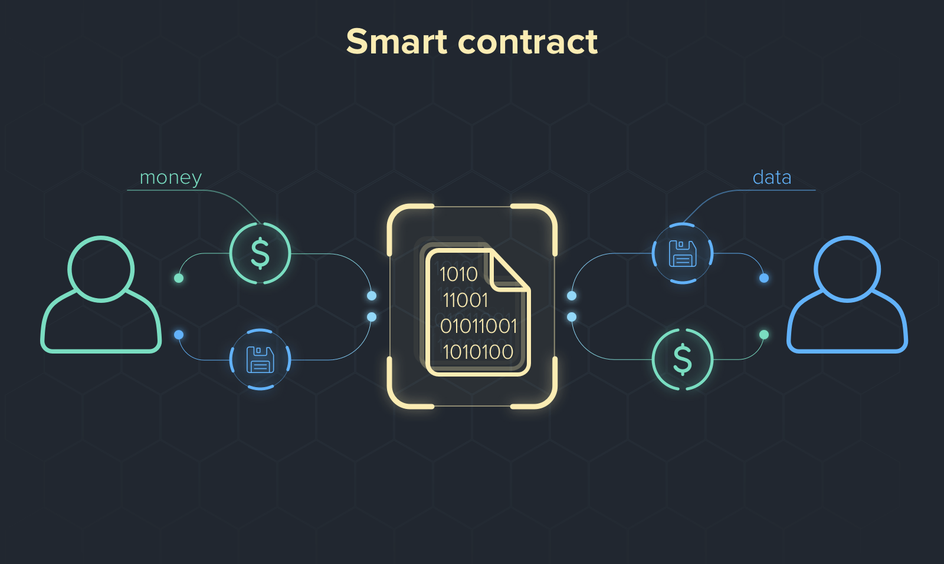How Smart Contracts on the Blockchain Are Disrupting Traditional Legal Agreements

Introduction
Are you tired of wading through stacks of paperwork, waiting for signatures, and dealing with tedious legal processes? Well, get ready to embrace a groundbreaking disruption in the world of contracts. Enter smart contracts on the blockchain! These digital agreements are revolutionizing how we do business by automating and streamlining traditional legal agreements. In this blog post, we’ll explore what smart contracts are, their role in the blockchain ecosystem, and why they’re causing such a stir in the legal industry. So fasten your seatbelts because we’re about to embark on an exciting journey into the future of contractual relationships!
What is the Blockchain and its role in Smart Contracts?
The blockchain is a decentralized digital ledger that records transactions across multiple computers, making it secure and transparent. It eliminates the need for intermediaries, such as banks or legal authorities, by allowing parties to transact directly with each other.
Smart contracts are self-executing agreements that automatically enforce contract terms without needing third-party involvement. These contracts are stored on the blockchain and execute once predefined conditions are met.
The role of the blockchain in smart contracts is crucial. By utilizing distributed ledger technology, blockchain ensures transparency, immutability, and security of smart contract transactions. Once a smart contract is deployed on the blockchain network, it becomes tamper-proof since all changes must be agreed upon by majority consensus.
Additionally, the decentralized nature of the blockchain eliminates single points of failure or control over contractual agreements. This means that neither party can unilaterally modify or terminate an agreement without consensus from all involved parties.
Furthermore, using smart contracts on a blockchain enables real-time tracking and verification of contract performance. Parties can trust that their counterparts will fulfill their obligations due to automated execution based on predetermined rules encoded within the smart contract code.
Through its decentralized nature and secure infrastructure, the use of blockchain technology empowers smart contracts to revolutionize traditional legal agreements by providing efficiency, transparency, and security while reducing costs associated with intermediaries
Advantages of Smart Contracts over Traditional Legal Agreements
- Efficiency: Smart contracts are self-executing, meaning they automatically execute the terms of the agreement without the need for intermediaries or manual processing. This saves time and reduces the potential for errors.
- Cost-effective: Since smart contracts eliminate the need for intermediaries, there is no need to pay fees or commissions for their services. This can significantly reduce costs associated with traditional legal agreements.
- Trustworthy: Smart contracts are based on blockchain technology, which provides a high level of security and immutability. This makes them more trustworthy than traditional legal agreements, as all parties involved can have confidence that the terms of the contract will be executed as agreed upon.
- Transparency: All transactions on a blockchain-based smart contract are recorded and visible to all parties involved. This promotes transparency and eliminates any potential for disputes arising from misinterpretation or lack of information.
- Automation: Smart contracts can be programmed to trigger automatically when certain conditions are met, reducing the need for manual input and intervention from third parties.
- Flexibility: Smart contracts can be easily customized to fit specific needs and requirements, making them more flexible than traditional legal agreements that often have standardized templates.
- Speed: Traditional legal agreements can take days or even weeks to process and execute. Smart contracts, on the other hand, can be executed almost instantaneously, saving time and increasing efficiency.
You May Also Like: Legal Challenges and Risks Associated with Smart Contracts
Potential Challenges and Risks of Implementing Smart Contracts
- Complexity and Technical Expertise: Smart contracts are coded using specialized programming languages, which can be complex and require technical expertise to create and maintain. This may pose a challenge for businesses or individuals without the necessary skills or resources.
- Security Vulnerabilities: Smart contracts are vulnerable to bugs and errors in the code, which can lead to security breaches and financial losses. This is especially concerning for high-value transactions.
- Lack of Legal Framework: The legal implications of smart contracts are still being explored and there is currently no established legal framework governing their use. This creates uncertainty around the enforceability of smart contracts in the event of disputes.
- Integration with Existing Systems: Implementing smart contracts may require integration with existing systems and processes, which can be time-consuming and costly.
- Inflexibility: Once a smart contract is deployed on a blockchain network, it cannot be changed or modified. This lack of flexibility may be problematic if there are changes in business requirements or if errors are discovered in the code.
- Dependence on Blockchain Network: Smart contracts operate on blockchain networks, meaning they are dependent on the underlying infrastructure for their functioning. Any issues with the network architecture or consensus algorithm could potentially impact the execution of smart contracts.
How to Get Started with Smart Contracts
- Understand the Basics of Blockchain Technology: Smart contracts are built on top of blockchain technology, so it is important to have a basic understanding of how blockchain works. This includes understanding concepts such as decentralization, cryptography, and consensus algorithms.
- Choose a Platform: There are various platforms that support smart contract development such as Ethereum, EOS, and Neo. Each platform has its own programming language and ecosystem, so it is important to research and choose the one that best fits your needs.
- Learn the Programming Language: Each platform has its own programming language for writing smart contracts. For example, Ethereum uses Solidity while EOS uses C++. It is important to familiarize yourself with the syntax and features of the language before diving into coding.
- Set up a Development Environment: To write and test smart contracts, you will need to set up a development environment on your computer. This typically involves downloading a specific software development kit (SDK) for your chosen platform and setting up a local blockchain network.
- Write Your First Smart Contract: Once you have chosen your platform, learned the programming language, and set up a development environment, you can start writing your first smart contract. Start with simple examples and gradually move on to more complex ones as you become more comfortable with the language and platform.
- Test Your Smart Contract: After writing your smart contract, it is important to test it thoroughly before deploying it on the blockchain. This can help identify any bugs or vulnerabilities that need to be fixed before the contract is live.
- Deploy Your Smart Contract: Once you are satisfied with your smart contract and have tested it extensively, you can deploy it on a public blockchain network. This will make your smart contract accessible to users and allow them to interact with it.
- Monitor and Maintain Your Smart Contract: Once your smart contract is deployed, you will need to monitor its performance and make any necessary updates or bug fixes. It is important to regularly review and audit your smart contract code to ensure its security and efficiency.
Conclusion: The Future of Legal Agreements with Smart Contracts
The future holds immense possibilities for smart contracts on the blockchain. We will likely witness a shift towards a decentralized ecosystem where parties can engage in secure transactions directly without relying on intermediaries or centralized authorities. This will not only reduce costs but also foster greater trust among participants.
FAQ
What are smart contracts, and how do they differ from traditional legal agreements?
Smart contracts are self-executing contracts with the terms of the agreement directly written into code on a blockchain. Unlike traditional legal agreements, smart contracts automatically enforce and execute the terms without the need for intermediaries.
How do smart contracts enhance efficiency in legal processes?
Smart contracts automate the execution of agreements, reducing the need for manual intervention. This leads to faster transaction times, lower costs, and increased efficiency compared to traditional legal processes.
Can smart contracts handle complex legal scenarios?
While smart contracts excel in automating straightforward and predefined conditions, they may struggle with highly complex legal scenarios that require interpretation or subjective judgment, areas where human intervention might still be necessary.
What blockchain platforms support smart contracts?
Ethereum is the most well-known blockchain platform supporting smart contracts, but others like Binance Smart Chain, Cardano, and Solana also provide smart contract capabilities.
Are smart contracts legally binding?
Yes, smart contracts are legally binding as long as they meet the legal requirements of a valid contract. The enforceability depends on jurisdiction and whether the parties intend for the smart contract to be legally binding.

















































































































































































































































































































































































































































































































































